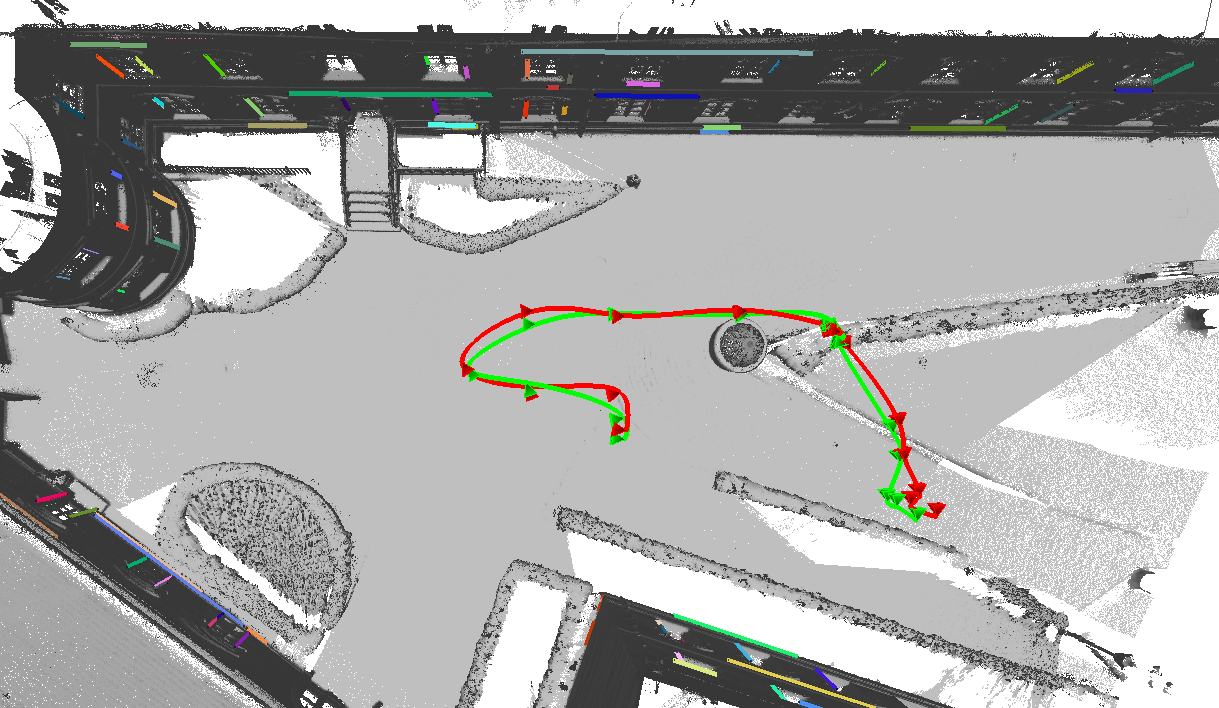Research Group on Visual Computation
- Home
- Projects
- TODER Project
- Demo Software
- Open positions
- COSCH Training School 2015
- Publications
- Intranet
A Direct Least-Squares Solution to Multi-View Absolute and Relative Pose from 2D-3D Perspective Line Pairs | |
 |
|
Description
This page contains the code for the absolute and relative pose estimation for a Multiview camera system using 3D-2D line correspondences that use perspective cameras including also outliers filtering step. The solution is useful for many computer vision applications such as visual Odometry, simultaneous localization and mapping (SLAM), image-based localization and navigation, augmented reality.
FilesAll the codes are released under the GNU General Public License and contain the methods described in our [1] publication, you can download the full test environment here: code
Example input: input for the RANSAC demo, the data contains 5 cameras and 120 lines (60 lines/120 are outliers). 'threshold' is the line backprojection value that separates the inliers from the outliers Input parameters:
NOTE: we assume a calibrated perspective camera, and we work with the equivalent normalized image coordinates of the line endpoints. If we have a matrix M of size 3xn which contains the 2D coordinates with homogeneous coordinate representation in the image plane then we can normalize the coordinates as follows:
Output:
Please cite our [1] publication whenever you use the implementation. |
- Hichem Abdellali, Robert Frohlich, Zoltan Kato, A Direct Least-Squares Solution to Multi-View Absolute and Relative Pose from 2D-3D Perspective Line Pairs, In Proceedings of ICCV Workshop on 3D Reconstruction in the Wild, Seoul, Korea, 2019. [bibtex]
Hichem Abdellali has been awarded the Doctor of Philosophy (PhD.) degree...
2022-04-30
Hichem Abdellali has been awarded the KÉPAF Kuba Attila prize...
2021-06-24